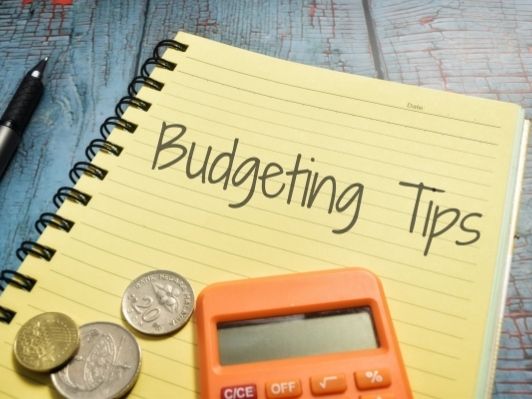We’ve all been there. We’ve worked out how much we need each month, and we should have money left over. But we end up running out and not saving anything.
Spending habits can be easy to fall into, but if they’re not working for you, you need to change them. It doesn’t have to be hard. By using some simple budgeting tactics, you can regain control of your money. You’ll find it reassuring when you know you’re keeping your finances on track. Let’s look at some of the best budgeting tips that you can start using today.
Table of Contents
1. Do a Full Budget Plan
When you’re working out what your income and monthly expenses are, you need to be brutally honest with yourself. Look through the last few months’ bank statements to see where your money’s going. Include everything you routinely spend your money on.
If you need to estimate how much you spend on something, always overestimate. Remember to include a monthly amount for anything you pay in one lump sum too. For example, do you pay tax insurance on your car in one go, or do you spend extra at Christmas? If so, divide that amount up over 12 months and include it in your budget plan.
Once you’ve got everything listed, you’ll see the true picture of where your money’s going. Look at what you’re paying for that you don’t need. Could you be putting your money to better use by spending it on something else? This is a worthwhile exercise that helps you take back control of your money.
2. Budget to Zero
This may not sound like a good solution, but it really is. When you go through your income and outgoings, do you find you have any money left over? If so, allocate it to something – ideally into a savings account. If you’ve got any loans or credit card debt, put your spare money towards paying those off. Especially high interest ones like payday loans or short term loans. Make this part of your budget plan.
The reason is: if you know you don’t have a buffer of spare cash, you’ll be more likely to stick to your budget.
3. Have No Spend Days Each Month
Have you ever gone a whole day without spending anything? It’s surprising how much we spend each day without realising. It might be on a coffee or a snack, but every penny spent is money going out rather than being saved. So, try going a whole day without spending a penny.
Even if you’ve tried this before, make it a new habit that you do every week. Promise yourself that for at least one day each week you’re going to have a ‘no spend’ day. It’ll make you think ahead about what you’re going to need through the day to avoid spending. Once you’ve mastered this try for two days in a week. As you see yourself holding on to your money, you’ll be encouraged to think twice about spending it next time.
4. Give Yourself Financial Goals
Having something to aim like a financial goal that gives you the motivation to do what you can to achieve it. This helps you create new spending habits and stick to them. For example, if you want to take a holiday, set up a savings account that you put money into each month. Some banks even let you label the account for what your saving towards. Make sure the amount you need to save goes out as soon as your wages go in. That way you won’t be tempted to spend it.
If your goal is to reduce your debts, then the same rule applies. Send any spare cash you have each month to your loans or credit card debt as soon as your wages hit your account. Having this as one of your budgeting tactics will soon pay off.
5. Check Your Budget Each Month
Not all months are the same. You may have more birthdays in one month than another, more unexpected expenses in one than in another. When this happens, you’ll have to amend your budget plan accordingly. By keeping check on what you’ve got to pay out, you can plan how you’re going to cover everything. You could start by cutting back on some items for a couple of months to free up some cash.
Whenever you can, try to allocate some of your household budget into an emergency fund . You’ll be glad you did when any emergency expenses crop up.
Budgeting doesn’t have to be scary. Keeping to a plan means you don’t have to worry about where your money’s going.
You should be proud of yourself every month that you stick to your budget. It might seem like a small achievement, but it’s in appreciating each one that you’ll be encouraged to keep going. And you’ll reap the rewards in the long run.
Disclaimer: Please note, we are not providing financial advice. Our blogs are written for informational purposes only.

